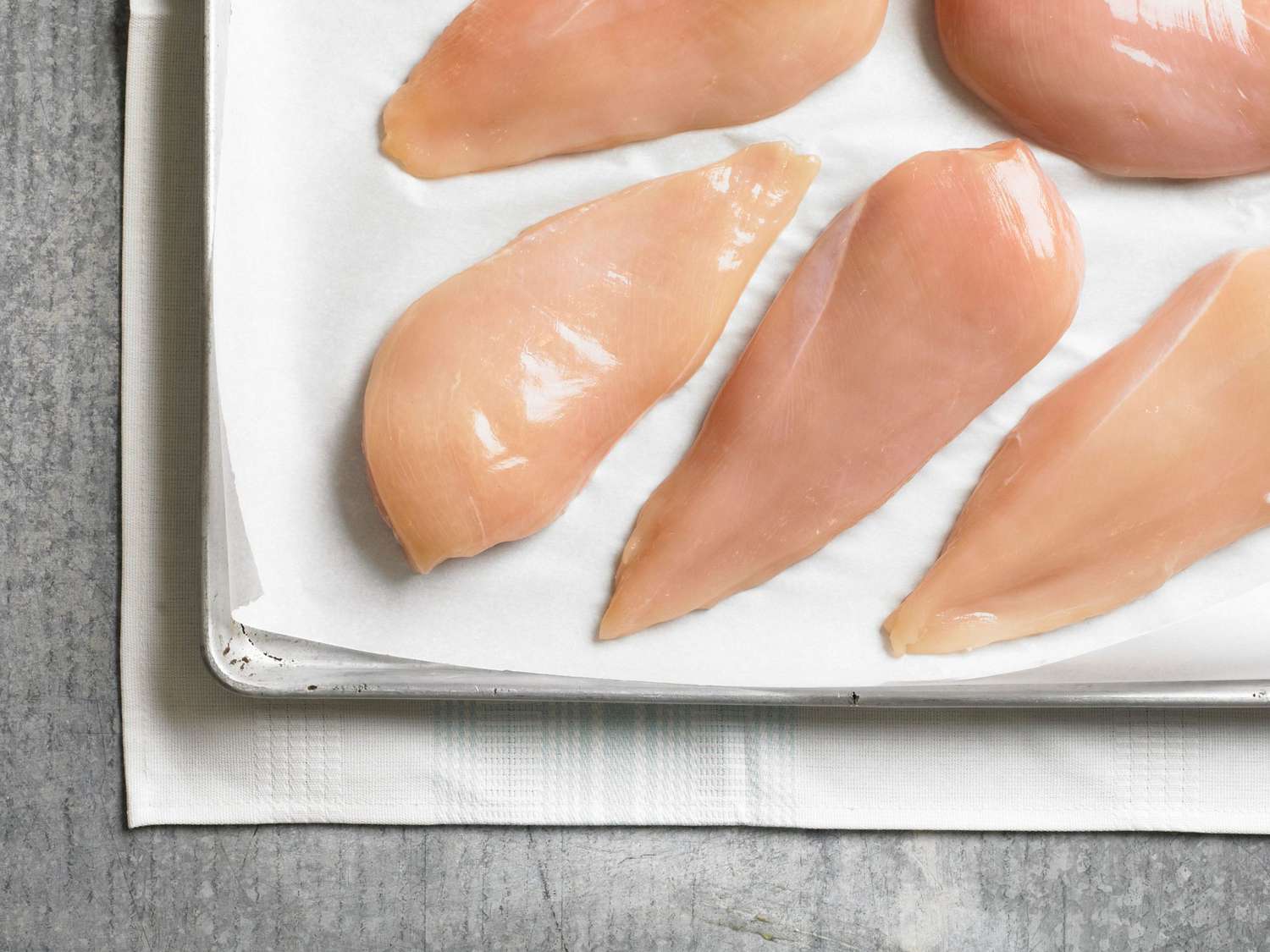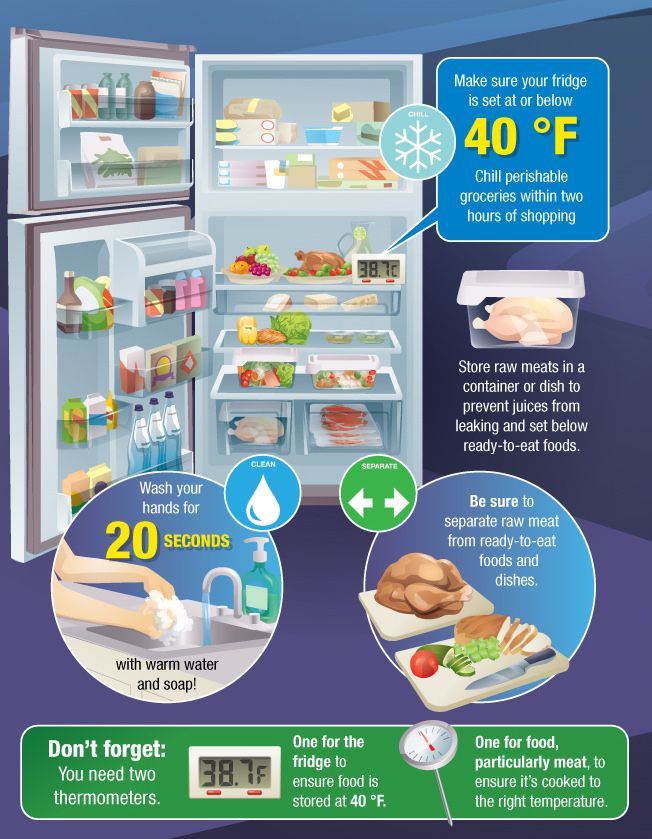Importance Of Food Safety Guidelines

Following food safety guidelines is crucial for ensuring the safety and well-being of individuals. These guidelines are designed to prevent foodborne illnesses and maintain the quality of the food we consume. By adhering to these guidelines, we can minimize the risk of contamination and spoilage, protecting ourselves and our loved ones from potential health hazards. Food safety guidelines provide us with necessary information on proper storage, handling, and preparation techniques, empowering us to make informed decisions and prevent the consumption of spoiled or contaminated food. By prioritizing food safety, we can enjoy meals that are not only delicious but also safe.
Understanding The Significance Of Following Food Safety Guidelines
Following food safety guidelines is of paramount importance in guaranteeing the health and safety of individuals. These guidelines are established to minimize the risk of foodborne illnesses and maintain the quality of the food we consume. By adhering to these guidelines, individuals can gain vital knowledge about proper storage, handling, and preparation techniques, enabling them to make informed decisions and prevent the consumption of contaminated or spoiled food. By prioritizing food safety, individuals can enjoy meals that are not only delicious but also safe, ensuring the well-being of themselves and their loved ones.
Exploring The Risks Of Consuming Raw Chicken Stored In The Fridge For 7 Days
Consuming raw chicken that has been stored in the fridge for 7 days poses significant health risks. As raw chicken ages, the chances of bacterial contamination increase, putting individuals at risk of foodborne illnesses such as salmonella or Campylobacter infection. These bacteria can cause severe symptoms such as diarrhea, abdominal pain, fever, and vomiting. Additionally, the longer raw chicken is stored, the greater the likelihood of spoilage, which can lead to other gastrointestinal issues. It is crucial to follow food safety guidelines and discard any raw chicken that has been stored for more than a few days to ensure the safety of consumption.
General Guidelines For Storing Raw Chicken

When it comes to storing raw chicken, there are a few general guidelines to follow to ensure food safety. First, it is important to store raw chicken at a proper temperature, which is below 40°F (4°C). This helps prevent bacterial growth. Additionally, raw chicken should be stored in a sealed or covered container to prevent cross-contamination with other foods. It is also recommended to keep raw chicken on the bottom shelf of the fridge to avoid any potential drippings onto other foods. By adhering to these guidelines, individuals can minimize the risk of bacterial contamination and ensure the safety of consuming raw chicken.
Proper Storage Temperature For Raw Chicken
Raw chicken should always be stored at a temperature below 40°F (4°C). This is because temperatures below 40°F help to inhibit the growth of harmful bacteria that can cause foodborne illnesses. It is important to keep the chicken refrigerated at this temperature to maintain its safety and quality. Storing raw chicken at a lower temperature also helps to preserve its freshness and extend its shelf life. By ensuring that the chicken is properly stored at the recommended temperature, individuals can reduce the risk of bacterial contamination and ensure the safety of consuming raw chicken.
Duration For Which Raw Chicken Can Be Safely Stored In The Fridge
Raw chicken can be safely stored in the fridge for a limited period of time. It is recommended to use raw chicken within one to two days of purchase to ensure its freshness and safety. After this time, the risk of bacterial growth and potential foodborne illnesses increases. It is important to always check the expiration date on the packaging and follow proper storage guidelines. If the raw chicken shows signs of spoilage, such as a foul odor or slimy texture, it should be discarded immediately. Regularly clean and maintain the fridge to prevent cross-contamination.
Signs Of Spoiled Raw Chicken

When raw chicken has spoiled, there are several noticeable signs that indicate its deterioration. These signs include changes in physical appearance, such as a slimy or sticky texture on the chicken’s surface. The color of the chicken may also change to a yellowish or grayish hue. Additionally, a foul odor emanating from the chicken is a clear indication of spoilage. It is crucial to discard any chicken that shows these signs to prevent the risk of foodborne illnesses. Regularly inspecting and monitoring the condition of raw chicken can help ensure food safety.
Identifying Physical Changes In Raw Chicken Indicating Spoilage
When raw chicken spoils, there are distinct physical changes that can be observed. These changes include a slimy or sticky texture on the surface of the chicken. The color of the chicken may also change to a yellowish or grayish hue. Furthermore, the chicken may develop patches of discoloration or dark spots. These physical changes indicate that the chicken is no longer safe for consumption and should be discarded immediately. It is important to visually inspect raw chicken before cooking to ensure its freshness and prevent the risk of foodborne illnesses.
Recognizing Off Smells And Textures In Spoiled Raw Chicken
When raw chicken spoils, it develops distinctive off smells and textures that are easily recognizable. One of the key indicators of spoiled chicken is a foul or unpleasant odor. If the chicken has a strong, pungent smell or emits a sour or ammonia-like stench, it is a clear sign that it has gone bad. In terms of texture, spoiled chicken may feel slimy or sticky to the touch. Additionally, the color of the chicken may change to a yellowish or grayish hue, and it may develop patches of discoloration or dark spots. These unmistakable characteristics should prompt immediate disposal of the chicken to avoid the risk of foodborne illnesses.
Health Risks Associated With Spoiled Chicken Consumption

Consuming spoiled raw chicken poses significant health risks. Spoiled chicken may contain harmful bacteria such as Salmonella, Campylobacter, or E. coli, which can cause foodborne illnesses. These bacteria can multiply rapidly in spoiled chicken, leading to gastrointestinal symptoms such as nausea, vomiting, diarrhea, and abdominal pain. In severe cases, food poisoning from spoiled chicken can result in dehydration, bloody stools, and even require hospitalization. It is crucial to avoid consuming spoiled chicken to prevent these potential health risks. Properly handling and storing chicken, as well as recognizing signs of spoilage, is essential for maintaining food safety.
Potential Foodborne Illnesses From Consuming Spoiled Raw Chicken
Consuming spoiled raw chicken can lead to various foodborne illnesses. The most common bacteria found in spoiled chicken, such as Salmonella, Campylobacter, and E. coli, can cause severe gastrointestinal infections. These infections can result in symptoms like nausea, vomiting, diarrhea, and abdominal pain. In some cases, food poisoning from spoiled chicken can cause dehydration, bloody stools, and even require hospitalization. It is essential to handle and cook chicken properly to prevent the growth of these harmful bacteria and avoid the risk of foodborne illnesses.
Common Symptoms Of Food Poisoning Caused By Spoiled Chicken
Consuming spoiled raw chicken can lead to food poisoning, resulting in various symptoms. Some common symptoms of food poisoning caused by spoiled chicken include nausea, vomiting, diarrhea, abdominal pain, and fever. In severe cases, individuals may experience dehydration, bloody stools, and require hospitalization. It is important to be aware of these symptoms and seek medical attention if necessary. By understanding the potential risks associated with consuming spoiled chicken, individuals can take necessary precautions to ensure food safety and avoid the health consequences of foodborne illnesses.
Maintaining Food Safety Practices

Maintaining food safety practices is crucial to prevent foodborne illnesses and ensure the safety of raw chicken. To properly store raw chicken in the fridge, it is important to keep it in a sealed container or plastic bag to prevent cross-contamination. It is also recommended to place raw chicken on the bottom shelf to avoid dripping onto other foods. When handling and preparing raw chicken, always wash hands thoroughly before and after, and use separate utensils and cutting boards for raw and cooked foods. Following these practices can reduce the risk of bacterial contamination and ensure safe consumption of raw chicken.
Tips For Properly Storing Raw Chicken In The Fridge
To properly store raw chicken in the fridge and ensure food safety, it is important to follow these tips:
- Use a sealed container or airtight plastic bag to prevent cross-contamination with other foods.
- Place raw chicken on the bottom shelf to prevent any potential dripping onto other foods.
- Keep the fridge temperature below 40°F (4°C) to inhibit bacterial growth.
- Avoid storing raw chicken for more than two days to minimize the risk of spoilage and bacterial contamination.
- Regularly clean and sanitize the fridge to prevent the growth of harmful bacteria.
By following these tips, you can maintain the freshness and safety of your raw chicken while minimizing the risk of foodborne illnesses.
Best Practices For Handling And Preparing Raw Chicken To Prevent Contamination
To prevent contamination and ensure food safety, it is essential to follow best practices when handling and preparing raw chicken. Firstly, always wash your hands thoroughly with soap and water before and after handling raw chicken. Secondly, use separate cutting boards and utensils for raw chicken to avoid cross-contamination with other foods. Additionally, ensure that the chicken is cooked to the appropriate internal temperature, which is 165°F (74°C), to kill any bacteria present. Lastly, clean and sanitize all surfaces, utensils, and equipment that come into contact with raw chicken to prevent the spread of harmful bacteria. By following these best practices, you can minimize the risk of contamination and ensure the safety of your chicken dish.
Conclusion

In conclusion, it is crucial to prioritize food safety guidelines when it comes to storing raw chicken in the fridge. Storing raw chicken for extended periods, such as 7 days, can increase the risk of bacterial growth and foodborne illnesses. By properly storing raw chicken at the correct temperature, recognizing signs of spoilage, and following best practices for handling and preparation, individuals can minimize the health risks associated with consuming spoiled chicken. Adhering to food safety guidelines ensures the safe consumption of chicken and reduces the likelihood of foodborne illnesses.
Understanding The Risks Of Storing Raw Chicken In The Fridge For Extended Periods
Storing raw chicken in the fridge for extended periods poses significant risks to food safety. Bacterial growth can occur when chicken is stored for more than a few days, increasing the risk of foodborne illnesses. The longer raw chicken is left in the fridge, the higher the chances of it becoming contaminated. Consuming spoiled chicken can lead to symptoms like abdominal pain, nausea, and diarrhea. To avoid these risks, it is important to prioritize proper storage and adhere to food safety guidelines to ensure the safe consumption of chicken.
Importance Of Adhering To Food Safety Guidelines To Ensure Safe Consumption
Adhering to food safety guidelines is of utmost importance to ensure the safe consumption of raw chicken. Following these guidelines can help prevent bacterial growth and reduce the risk of foodborne illnesses. Proper storage and handling techniques, such as storing chicken at the correct temperature and avoiding cross-contamination with other foods, can significantly decrease the chances of contamination. By adhering to these guidelines, individuals can protect themselves and their families from potential health risks associated with consuming spoiled chicken. It is crucial to prioritize food safety to promote safe and healthy eating habits.
FAQ About Raw Chicken In Fridge For 7 Days: Understanding Food Safety Guidelines
Q: Can raw chicken be stored in the fridge for 7 days?
A: It is generally recommended to consume or freeze raw chicken within 1-2 days of purchase for optimal freshness and safety.
Q: What are the risks of storing raw chicken in the fridge for 7 days?
A: Storing raw chicken for an extended period increases the risk of bacterial growth, contamination, and potential foodborne illnesses.
Q: How can one ensure the safety of consuming raw chicken stored for 7 days?
A: It is best to follow food safety guidelines, including proper storage temperatures, using airtight containers, and ensuring the chicken is cooked to the correct internal temperature before consumption.
Q: What are the signs that raw chicken has gone bad after 7 days in the fridge?
A: Signs of spoiled raw chicken include a sour or ammonia-like odor, slimy texture, discoloration, or the presence of mold. It’s safest to discard if any of these signs are detected.
Q: Can freezing raw chicken prolong its shelf life beyond 7 days?
A: Freezing raw chicken can extend its shelf life significantly, up to several months, while maintaining its quality and safety. Ensure proper wrapping and labeling for freezer storage.
Q: Should one follow any specific guidelines when handling raw chicken to prevent contamination?
A: Yes, it is crucial to practice proper food handling techniques, such as washing hands, utensils, and surfaces, avoiding cross-contamination with other foods, and cooking chicken to the recommended temperature.
Q: How should one dispose of raw chicken that has exceeded the recommended storage time?
A: It is best to securely wrap the raw chicken in a plastic bag before disposing of it in the trash to prevent any leaks or contamination. Avoid leaving it exposed in the garbage bin.

Johnny Knuckles Knock-out BBQ is a culinary haven for barbecue enthusiasts, offering a fusion of traditional BBQ and tantalizing street fare. Our secret to delivering mouthwatering dishes lies in our meticulous preparation process. Each cut of meat is lovingly hand-rubbed and slow-smoked over 100% hardwood, creating a symphony of flavors that will leave your taste buds dancing. Whether planning a special event or simply craving an unforgettable meal, Johnny Knuckles Knock-out BBQ is here to elevate your dining experience. Our catering services are designed to bring the sizzle and aroma of our delectable BBQ to your event, ensuring that every guest leaves with a full belly and a smile.